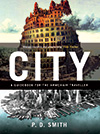Two cultures
12 July 2007 | Brockman, Science & literature, Vonnegut | 2 comments
The Spanish philosopher Salvador Pániker has written a fascinating article on the two cultures for the Opinion page of El Pais (February 18, 2007). He argues that "permeability between sciences, arts and letters" should become "a hallmark of our times".
Referring to John Brockman's idea of a "third culture" of scientist-writers and the dawn of a new age of humanism, he suggests that intellectuals outside the sciences do need to engage with science: "Humanism's received task is more deferential toward the autonomy of science: To truly understand our most fundamental conditionings; to ensure that scientific paradigms truly fertilize philosophical and even literary discourse."
Culture is "born from the cross-fertilization of individual disciplines". Rather than seeking to unify all fields of knowledge beneath the banner of science, Pániker joins French philosopher Edgar Morin in calling for a spirit of "transdisciplinarity", which "aspires to a communication between the disciplines based on complex thought".
I agree very much with Pániker's argument. You can't ignore science, but neither should you be a passive consumer. As someone who writes about the history of science, literature and film, finding those moments where these different fields meet and produce new ideas is what it's all about.
It reminds me of a memorable quote from the late great Kurt Vonnegut: "I think that novels that leave out technology misrepresent life as badly as Victorians misrepresented life by leaving out sex."
Pániker's article is on Brockman's site, Edge.
And while we're on the subject of the two cultures, there's an amusing blog on poetry and science by Shirley Dent at Guardian Unlimited. Tim Adams has also written an intriguing piece for the Observer on "The new age of ignorance". It's interesting that in this article, Brockman says Vonnegut was one of the leading novelists who declined to take part in the meetings with scientists, artists, architects, and musicians that eventually became Edge. I wonder why...


shannon | 12 July 2007
I found this interesting:
"A new humanism should begin with a modesty cure, perhaps by abjuring the very arrogant concept of humanism, which places the human animal as the central reference point for all of existence."
Really, could we have any other reference point than the one that comes from our own consciousness? I don't think we can. From this reference point comes the reason for both science and literature--our search for answers on our origins, our motives, where our future will take us, etc. They are just two different tools used to dig for the same answers, as far as I can see.
PD Smith | 12 July 2007
Hmm. I see your point. I agree this is a problematic how-do-we-know-what-it's-like-to-be-a-bat kind of statement.
But surely there's something liberating in acknowledging that ours may not be the only view of the way things are...?